Search Results for: Vertebrates
Skip to resultsCan’t find what you’re looking for? Visit our FAQ page.
1,543 results for: Vertebrates
-
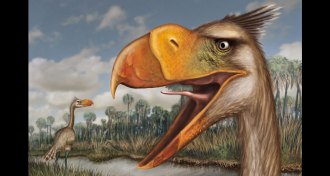 Paleontology
PaleontologyFossil reveals terror bird’s power
Bones of a new terror bird confirm the creatures used their beaks to hatchet their prey but also raise questions about what drove the birds extinct.
-
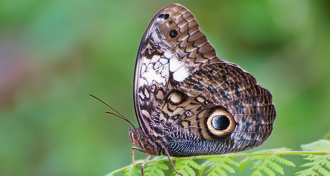 Life
LifeIt’s true: Butterfly spots can mimic scary eyes
Contrary to recent studies, the old notion that butterfly wing eyespots evoke predator eyes may not be so old-fashioned after all.
By Susan Milius -
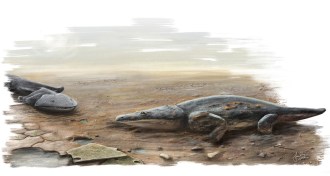 Paleontology
PaleontologyFossil of monstrous fish-eating amphibian unearthed
A new Triassic species of giant amphibian lived like a crocodile instead of like its cute little salamander and frog relatives of today.
By Susan Milius -
 Animals
AnimalsConservationists should make friends with hunters
A survey of outdoor enthusiasts in rural New York finds that both hunters and birdwatchers are likely to engage in conservation behaviors, such as donating money.
-
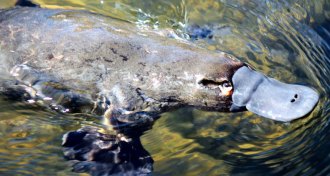 Animals
AnimalsCats and foxes are driving Australia’s mammals extinct
Since the arrival of Europeans in Australia, a startling number of mammal species have disappeared. A new study puts much of the blame on introduced cats and foxes.
-
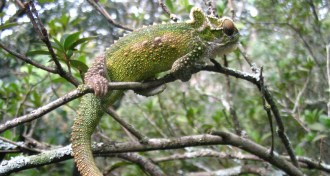 Animals
AnimalsChameleon tongue power underestimated
A South African chameleon species can shoot its tongue with up to 41,000 watts of power per kilogram of muscle involved, a new study finds.
By Susan Milius -
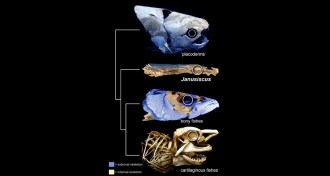 Life
LifeFossilized fish skull shakes up the evolutionary history of jaws
Analysis of a 415-million-year-old fossilized fish skull suggest that the earliest jawed vertebrates probably looked a lot like modern bony fish.
-
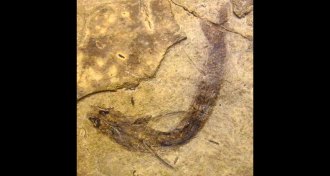 Life
LifeFossil fish eye has 300 million-year-old rods and cones
A fossil fish shows the earliest evidence of rods and cones, cells essential for color vision in vertebrates.
-
 Animals
AnimalsJust enough fat is good for an elephant seal
Fat affects the buoyancy of marine mammals. As elephant seals get fatter, they can spend less energy swimming and more time foraging, a new study finds.
-
 Animals
AnimalsTen real-life Halloween horrors in the natural world
Vampires and witches are nothing compared to mind-controlling parasites, nose ticks and antibiotic-resistant superbugs.
-
 Animals
Animals‘Planet of the Bugs’ reveals the secrets to insects’ success
Entomologist Scott Richard Shaw explores the evolution of insects and how they came to rule the world.
By Sid Perkins -
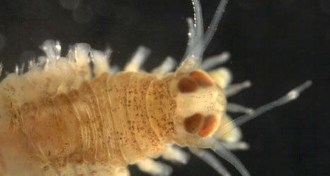 Neuroscience
NeuroscienceMelatonin and the watery beginnings of sleep
The tiny zooplankton Platynereis dumerilii use melatonin just as much as we do, suggesting that the origins of sleeplike behavior may lie under the sea.